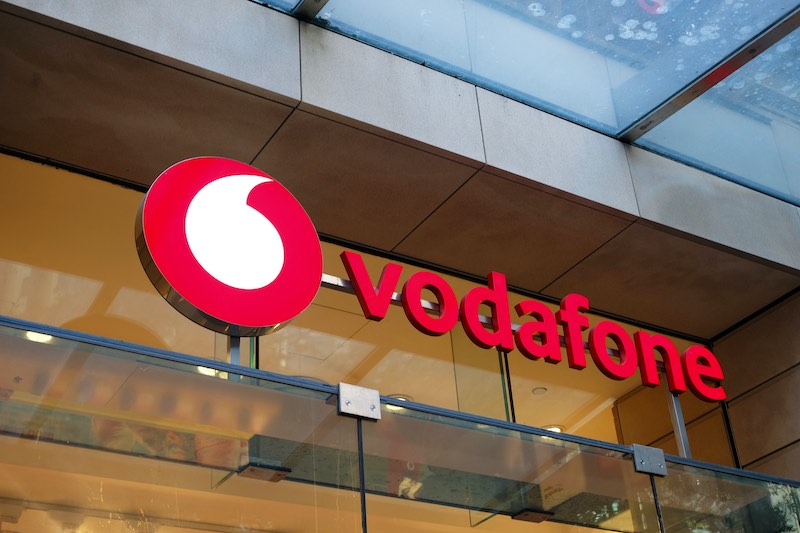

Today it is no longer about connecting IoT devices but providing complete solutions for customers. The solution runs on the high-performance OCI Container Engine for Kubernetes and is automated with OCI Resource Manager and Terraform across multiple Oracle Cloud Regions. For example, sensors in connected vehicles can enable services such as GPS map updates or infotainment, charged on a subscription or consumption basis. Vodafone is already monetizing IoT services using Oracle Communications Billing and Revenue Management (BRM) which runs on OCI.
VODAFONE MOBILE BROADBAND MY ACCOUNT PLUS
OCI offers integrated applications for Sales, Service, Marketing, Human Resources, Finance, Supply Chain, and Manufacturing, plus Automated and Secure Generation 2 Infrastructure featuring the Oracle Autonomous Database. With expertise in IoT, MEC, and 5g, Vodafone is well-positioned to offer new scalable next-generation digital services. The long-awaited convergence of the network with the cloud, IoT, and MEC will become the foundation for new service offerings. Additionally, it is instantaneously elastic, increasing or decreasing servers and cores as needed while the database is still running. When an application is not running on the Oracle Cloud, there are no CPUs dedicated hence no charges. One unique, differentiated example is that the Autonomous Database is serverless and elastic. Database administrators (DBAs) can now focus on more critical tasks, such as data aggregation, modeling, processing, governance strategies, and supporting developers. Oracle Autonomous Database is a cloud database that uses artificial intelligence (AI) and machine learning (ML) to automate database tuning, security, backups, updates, and other routine management tasks without human intervention. Ultimately, the end game is to redirect the IT organization away from building, integrating, and running technology to provide customers with new services and a better digital experience.Īs an example, Oracle Autonomous Database is now a feature of OCI. The Oracle platform will also bring automation to IT operations, enabling more IT staff to focus on the digital experience and the use of data to drive better customer experiences. Vodafone expects to significantly cut costs across operations and accelerate the development and time to market for new services. It will allow rationalization and consolidation of the IT estate while leveraging the cloud as a more efficient way of delivering and scaling new communications services. The Oracle implementation is a critical pillar in the pivot from ‘Telco to TechCo,’ providing the foundation for a common platform across the Vodafone Group. Vodafone has embraced Oracle Cloud Infrastructure (OCI) in a big way, consolidating forty data centers that run core services for its entire European operations (13 countries) into three locations (Ireland, Italy, and Germany) running on OCI. Pivot from running technology to building new services The work to modernize the “crown jewel” applications onto the Oracle Cloud might cause application ecosystems to move from AWS onto Oracle Cloud because it would be a more natural fit. Vodafone envisages a world in which half of the applications run in Amazon Web Services or Google Cloud and the other half run on the Oracle Cloud.
VODAFONE MOBILE BROADBAND MY ACCOUNT FULL
Oracle Dedicated Region is a complete OCI cloud deployed in the data center, providing a secure cloud platform to modernize existing infrastructure while retaining full control of data governance, meeting demanding data residency and security regulations.

This task could take several years to complete. Vodafone will be deploying Oracle Dedicated Region to modernize those thousands of Oracle databases that support its mission-critical transactional OSS and BSS systems-including core functions like order management and CRM. How many databases are too many? Vodafone has fifteen thousand (not a typo) and eight thousand associated applications.

Vodafone was able to take a more flexible approach to modernize and migrate the mission-critical systems- the most data-intensive/demanding or too costly/risky to move wholesale to the public cloud. Oracle was unique because it offered to build a complete public cloud capability in the Vodafone data centers. But, moving transactional systems wholesale to the public cloud is costly and complex, with the risk of performance and latency issues associated with maintaining those systems, which need to remain on-premises for legal or compliance reasons.


 0 kommentar(er)
0 kommentar(er)
